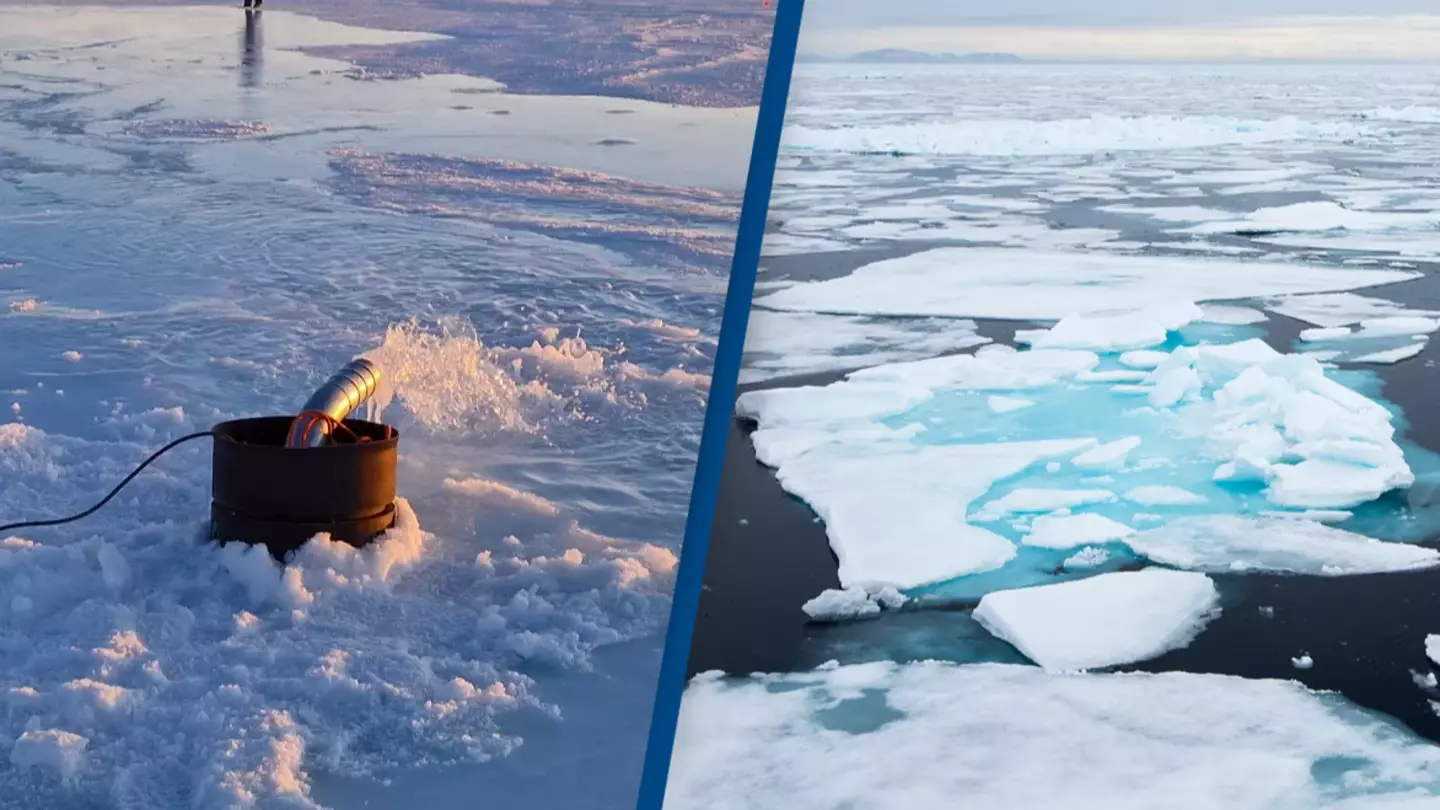The Arctic, one of the most severely affected regions due to climate change, has been warming at an alarming rate. The consequences of this warming are far-reaching, from more frequent droughts and severe storms to rising sea levels and the spread of diseases like malaria. In an effort to combat this, scientists have devised a plan to refreeze the Arctic, but the proposal has raised concerns among experts.
The Arctic’s ice has been shrinking at a rate of 12.2 percent per decade, according to NASA. To address this, a UK-based startup, Real Ice, has been conducting experiments to restore Arctic sea ice. The process involves drilling holes through the ice to pump out seawater, which is then frozen on the surface. Tests conducted in Cambridge Bay, Canada, have shown promising results, with four inches of ice formed so far.
While the initial results are encouraging, experts caution that it’s still early days. Shaun Fitzgerald, director of the Centre for Climate Repair at the University of Cambridge, expressed optimism but emphasized the need for more experiments and data. The technology used by Real Ice involves underwater drones with hydrogen fuel cell energy systems, which melt holes in the ice from below using heated drills.
However, not all experts are convinced about the plan’s feasibility and potential consequences. Liz Bagshaw, associate professor in polar environmental change at the University of Bristol, labeled the plan as “extremely questionable” and “morally dubious.” Jennifer Francis, a senior scientist at Woodwell Climate Research Center, also expressed serious doubts about the plan’s effectiveness and potential unforeseen consequences.
The concerns surrounding the plan are not unfounded. A 2024 report titled “Safeguarding the polar regions from dangerous geoengineering” argued that such interventions could cause severe environmental damage. The report emphasized that mitigating climate harm through immediate and rapid decarbonization is the best approach, rather than attempting interventions in fragile polar ecosystems.
As the debate surrounding the plan to refreeze the Arctic continues, one thing is clear: the need for urgent action to address climate change is undeniable. While the proposal may have shown promising results, it’s essential to carefully weigh the potential risks and benefits before proceeding.


